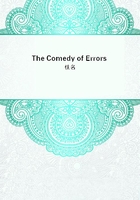Value in the Present-Day Economy of the State The conduct of economic life, as actually carried on, adds another and a stronger contrast to that which naturally exists between private and national valuation.
The state as it actually exists -- unlike the communistic state -- has not the management of all economic matters, but only of a trifling portion of them. And, again, all economic goods do not belong to the state. Indeed it does not possess even enough for the proper carrying out of its own objects. As a rule it possesses only the buildings and the fixed plant necessary for the exercise of its pubic functions. Whatever beyond is required for the current service must, for the most part, be handed over to it by the citizens in the shape of annual contributions from their property and income. The most important of these contributions are raised, as we know, in the shape of taxation, and to the consideration of this alone we shall here confine ourselves.
Schaffle (Steuerpolitik, p. 17) has already laid down the principle on which the goods which form the income of the citizens should be divided out, between taxes on the one hand for the satisfaction of public interests, and domestic outlay on the other for the satisfaction of private wants. He calls it the "principle of proportionate provision for the wants of the individual and the wants of the government." The income of the citizens must always be devoted to those employments which at the time are the most important. There must not be too rich an endowment of the pubic housekeeping at the expense of keeping down the citizen's, nor of the private housekeeping at the cost of deterioration in the pubic service.
Sax has developed the same idea still further. Goods obtain their value from the uses to which they are put. The correct principle for the appropriation of income to the purposes of the state is therefore simple; it is the universal principle of economical employment, viz. that goods be employed in accordance with their value. If the state should claim too much, it diminishes value, by expending goods for purposes of state economy which would have a higher value if employed in private economy. If it claims too little, value is again diminished -- as in this case also the entire importance of the goods is not realised.
This law obtains its full significance in consequence of the fact that riches are unequally distributed, and that personal incomes and, moreover, personal wants are of different degrees.
If every one had the same wealth, income, and wants, all the citizens would have to contribute the same quota of taxes. But as this is not so, they must contribute unequal quotas and again it is value which provides the measure. Every individual economy, in respect of the relation of supply and demand peculiar to it, has what Sax calls an "individual Werthstand." The same amounts of goods are valued differently, or, what amounts to the same thing, the same amounts of value are expressed in different quantities of goods. To understand this expression of Sax, it may be best to recur to a fact which we have already taken as a starting-point in arriving at the law of price. We said that every intending purchaser who goes on the market calculates to himself, or ought to calculate, the money equivalent of the goods he wishes to buy, i.e. the sum of money whose value to him will equal the value of the goods, so that it is not economically permissible for him to go beyond it. Now a similar money-equivalent must be calculated for the value which the services of the state have to the individual citizen. More than this money equivalent it cannot, economically speaking, be the duty of any citizen to pay in taxation, but, on the other hand, it is the duty of every one to pay taxes up to this amount in order to meet the costs of th e public service.















